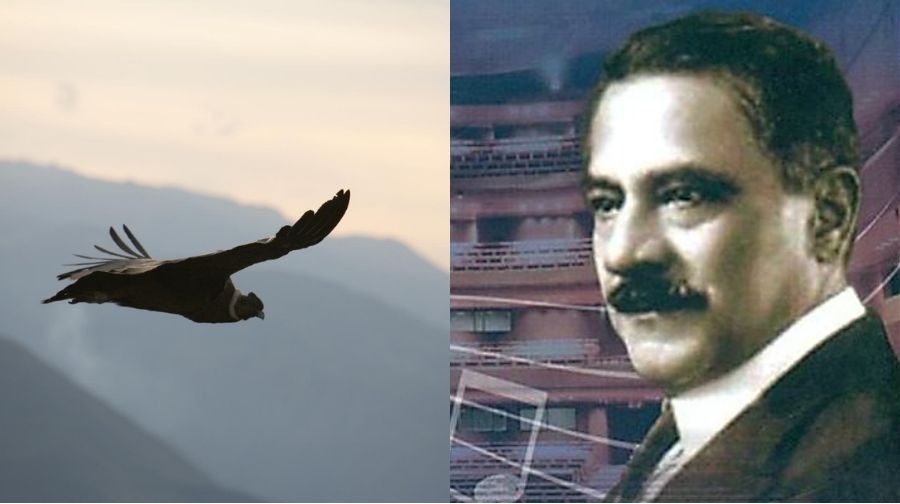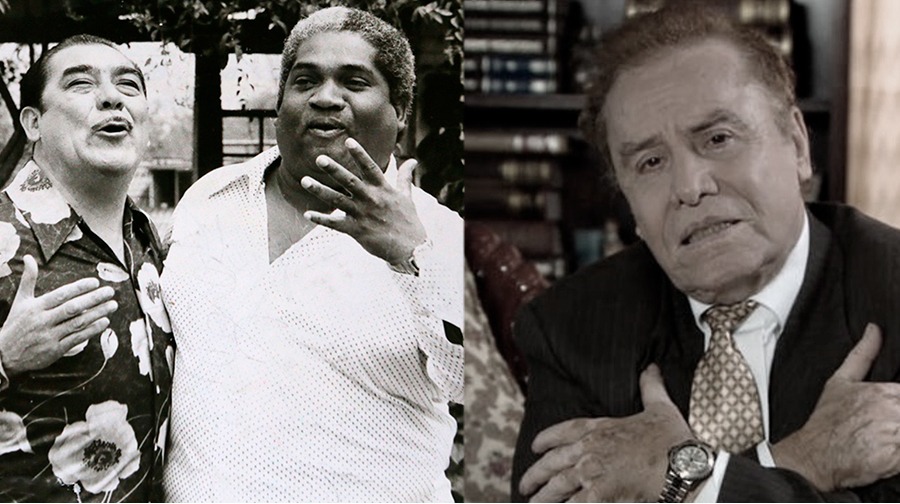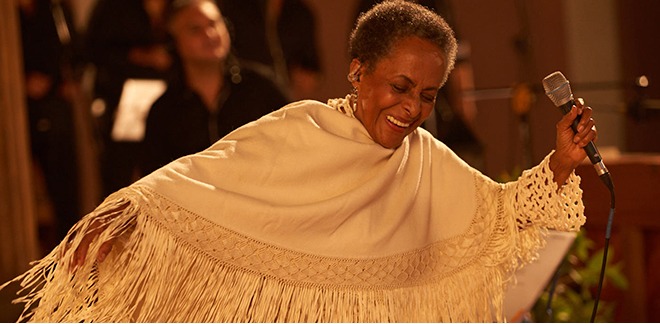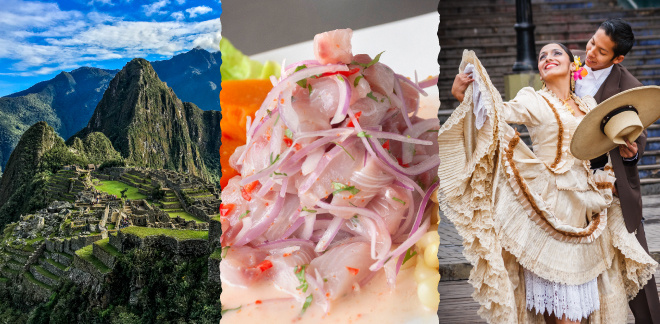"El Cóndor Pasa" is recognized by the BBC as “an unforgettable song”
Síguenos en:Google News
Even though El Cóndor Pasa (The Condor Passes) has no lyrics in its composition, it says a lot. Its chords, deep and sublime, are more than enough to pull at the heart strings of anyone who has had the chance to hear this melody.
Music is a universal language, and this brilliant zarzuela, composed by Daniel Alomía Robles 107 years ago, has just confirmed this once again, having been ranked by the BBC as one of the 50 most unforgettable songs in the world.
The piece – considered one of the most beautiful in our national repertoire – has traveled around the world through the voices and adaptations of outstanding musicians, such as the eternal Yma Súmac and the moving Paul Simon, who, arguably, catapulted it to the international stage.
El Cóndor Pasa has managed to position itself not only in the heart, but also in the memory of millions of people around the planet.
An elixir for memories
To celebrate World Alzheimer's Day (21 September), the well-known British media outlet prompted its readers to compile a list of memorable tracks that they would take to a desert island and that would never leave their memories.
The BBC collected approximately 1500 suggestions from hundreds of enthusiastic users. After a thorough evaluation, 50 musical hits were selected from around the world.
Peru took fifth place in the overall ranking with the unforgettable composition El Cóndor Pasa.
This was closely followed, in 14th place, by Chabuca Granda’s ever enduring song La Flor de la Canela.
Released on January 7, 1950 (during the golden age of Creole music), this eternal waltz was quickly converted into a classic among Lima’s bohemian circles of the time.
The fact that these two songs were included in the list demonstrates, once again, that the artistic expressions of Peru inspire, enchant and move people beyond borders.
It is worth mentioning that this BBC initiative is part of the Music and Memory project, which aims to collect songs from different countries and in different languages in order to analyze their content and discover why they are associated with memories.
El Cóndor Pasa: a historical legacy
More than a hundred years have passed since 1913, when the Mazzi Theater in Barrios Altos – a place frequented by the working classes – presented the production entitled El Cóndor Pasa.
The piece was intended to bear witness, through art, to the exploitation and abuse of the indigenous people by the mining companies, which were entering deep into the Peruvian highlands.
The composer Daniel Alomía Robles was not alone in this project, as he had the help of the journalist Julio Baudouin, who wrote the plot of the play.
To truly understand the composition, we have to go back to the defeat of Peru in the War of the Pacific (1879-1883). After the severe economic crisis that followed the war, part of the elite realized that the national identity had been lost, so they started researching Inca traditions to try and recover a sense of belonging.
Robles, who actively participated in the pro-indigenous association, took it upon himself to compile as many melodies as possible from the Andes. Thus, for two decades he traveled to different destinations around Peru (he also visited some places in Ecuador and Bolivia) to gather as much musical information as he could about the Incas.
According to historical data, he managed to collect approximately 1000 songs. Among these was another musical icon: Himno al Sol (Hymn to the Sun), a piece that is believed to have been shown to the composer by an indigenous elder named José Mateo Sánchez, from the Mantaro Valley. His mastery of the Quechua language allowed Robles to communicate perfectly with the various communities he visited. As such, he was able to learn of and understand the troubles that the indigenous people were experiencing.
Shortly after this, he came into contact with Julio Baudouin, with whom he shared the same anti-establishment and transgressive sentiment.
The plot of El Cóndor Pasa depicted the conflict between indigenous workers and the owners of a mining company located in Cerro de Pasco. Tired of abuse and exploitation, the subordinates, supported by one of their leaders, rise up and rebel against the oppressors until they defeat them forever. As an act of liberation, the condor crosses the mountains and rises through the heavens as a sign of victory and freedom.
Some studies have revealed that through the melody – deep and moving for many – Alomía sought to portray the suffering and laments experienced by the native Quechua speakers who lived there.
The composition was considered revolutionary for the time, since it was a fusion of zarzuela – a genre brought by the Spanish during the time of the conquest – and Andean rhythms such as yaraví and kashwa.
The play, which premiered during the short-lived government of Guillermo Billinghurst, who was very sympathetic to the underprivileged classes, achieved its purpose: to shake up a centralized Lima that was blind to what was happening in the provinces.
"A direct condemnation of that caliber caused a great stir at the time, and an uproar that continues to echo today. Back then, El Cóndor Pasa symbolized that longed-for freedom," explains Marcela Robles, a journalist and the composer's granddaughter.
In 1915, the writer José Carlos Mariátegui praised the stage production and declared it to be one of the most significant events of the time due to its strong nationalist character.
It is important to note that the famous piece that we know today is part of a set of songs that gave life to the stage production.
"The song El Cóndor Pasa comes from a melody that is part of a much more extensive piece: the musical play or zarzuela of the same name," points out Robles.
Versions
There are dozens of versions of El Cóndor Pasa, from a variety of genres, and in some cases it is even accompanied by lyrics. Some of the most representative are the versions by Simon & Garfunkel, the group Los Incas, Leo Rojas, Yma Súmac and Plácido Domingo.
"It has been translated into more than 80 languages and has been performed by some of the most outstanding musicians and orchestras in the world. The (unanswered) question remains as to why El Cóndor Pasa was able to tune in to so many different feelings," she says.
For Marcela, bearing the surname and blood of the composer is a privilege and constant source of pride; his drive and interest in the common good have been two pillars that have always accompanied her.
"The thing I will always remember is that my grandfather fought for his dreams and ideals, often going against the collective thought of the time, and he always did this in his own original and pioneering way. And although he had a strong and stubborn personality, he always thought of the common good, beyond his own individuality, and this is undeniably shown by his legacy and his actions for the benefit of the Peru he loved so much. And he left us a priceless legacy – his work. A record that is certainly difficult to erase," she states, emotional and grateful for the honorable mention by the BBC.
As long as there is a Peruvian in the world, El Cóndor Pasa will never be forgotten.
Sources: TV Perú/ Canal IPe/ BBC/ El Comercio









